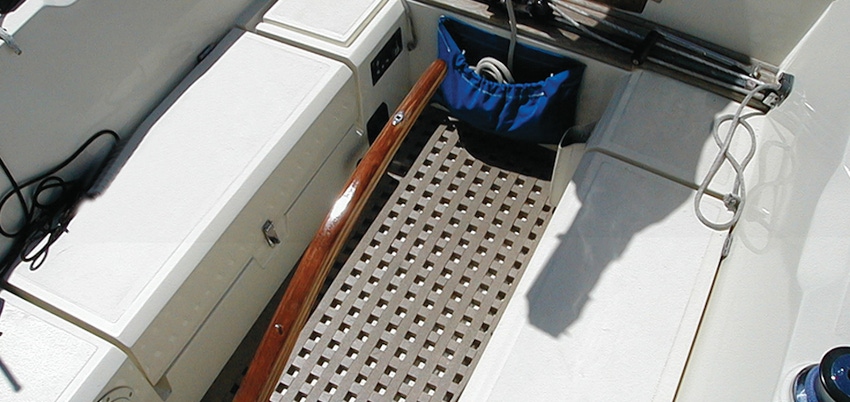N.E.W. Plastics Corp., which also does business as Renew Plastics, has agreed to stop making allegedly unsubstantiated claims about the recycled content and recyclability of two of its brands of plastic lumber, Evolve and Trimax. Under the FTC settlement, the company must have credible evidence to support any recycling-related claims it makes, and is required to tell its distributors to remove any marketing material for the two products provided by the company before December 2013.
February 27, 2014

N.E.W. Plastics Corp., which also does business as Renew Plastics, has agreed to stop making allegedly unsubstantiated claims about the recycled content and recyclability of two of its brands of plastic lumber, Evolve and Trimax. Under the FTC settlement, the company must have credible evidence to support any recycling-related claims it makes, and is required to tell its distributors to remove any marketing material for the two products provided by the company before December 2013.
The Luxemburg, WI, company makes plastic lumber products including the Evolve and Trimax brands, which are used to  make outdoor decking and railing and furniture, sold through distributors. According to the company's information, Evolve is a blend of virgin and recycled post-consumer and post-industrial HDPE. Unlike WPC (wood plastic composites), Evolve is 100 percent recyclable, the company claims, and instructs web-site visitors to contact the company for recycling options.
make outdoor decking and railing and furniture, sold through distributors. According to the company's information, Evolve is a blend of virgin and recycled post-consumer and post-industrial HDPE. Unlike WPC (wood plastic composites), Evolve is 100 percent recyclable, the company claims, and instructs web-site visitors to contact the company for recycling options.
In its administrative complaint, the FTC alleges that between September 2012 and March 2013, N.E.W. made false and misleading claims while promoting Evolve and Trimax. Specifically, the company claimed:
Evolve products are made from 90 percent or more recycled content, when in fact the product contained at most 58 percent recycled content;
Trimax products are made from mostly post-consumer recycled content when the product contained less than 12 percent post-consumer content on average; and
Both Evolve and Trimax are recyclable, when in fact local recyclers do not recycle Evolve or Trimax lumber.
The proposed consent order prohibits N.E.W. from making any statements about the recycled content, post-consumer recycled content, or environmental benefits of any product or package unless they are true, not misleading, and are substantiated by competent and reliable evidence, which for some claims must be scientific evidence, said the FTC's information.
The proposed order also bars N.E.W. from making unqualified recyclable claims about any product or package, unless the product or package can be recycled in an established recycling program, and such facilities are available to at least 70% of consumers or communities where the product or package is sold. If N.E.W. can't meet these requirements, it must qualify the claim regarding the availability of recycling centers. If only part of a product or package is recyclable, N.E.W. must disclose to consumers which part or portion of the product or package is recyclable. The order further bars N.E.W. from providing anyone else with the means of making false, misleading, or unsubstantiated claims, said the FTC. The order will end in 20 years.
While N.E.W. Plastics is not giving personal interviews, the company sent a statement regarding its recent Settlement Agreement with the U.S. FTC:
"N.E.W. Plastics regrets that some of our lumber product marketing materials were believed to contain incorrect or unsubstantiated information; it was never our intent to mislead our customers or consumers. It should be noted that we have worked cooperatively with the FTC and that this agreement does not, in any way, involve the quality, reliability or durability of our products nor does it issue any fines. We have agreed to contact our clients to dispose of current marketing collateral which will be replaced with new materials meeting FTC guidelines.
"N.E.W. Plastics takes great pride in our high quality products and in being a leader and innovator in plastic recycling technology for more than three decades. We take our commitment to the environment seriously and follow policies and practices that protect the environment for future generations."
About the Author(s)
You May Also Like




